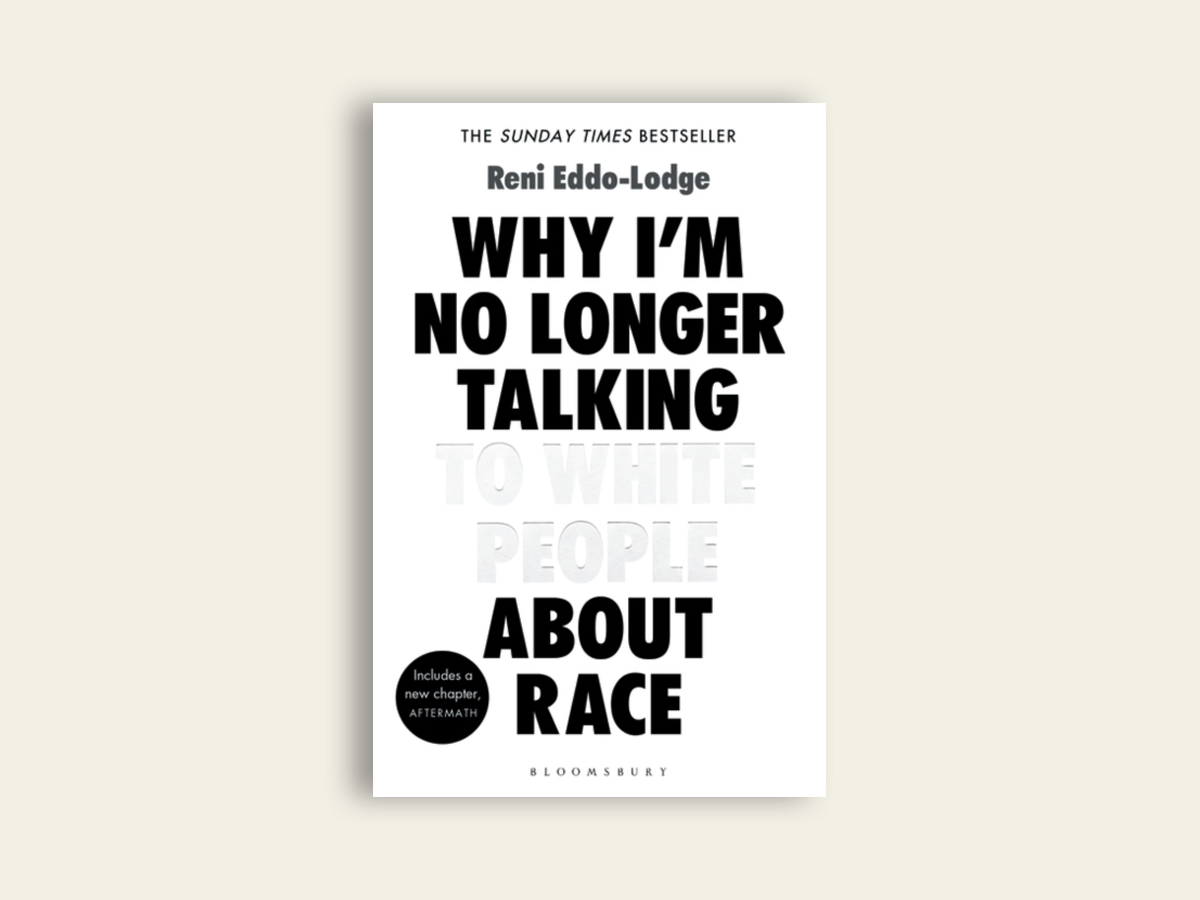Warning: half of my review are just quotes from the book because the author writes so beautifully that i just want to keep reiterating her.
Despite its title, "Why I'm No Longer Talking to White People About Race", the book is a must read for all.
Reni writes full of passion. She has a gift with words - using imageries and analogies to help navigate her readers through the complex world of racism.
Structural racism.
In order to fully make the most of this book, one must first be open to see how real and damaging structural racism is.
“Structural racism is dozens, or hundreds, or thousands of people with the same biases joining together to make up one organization, and acting accordingly. Structural racism is an impenetrably white workplace culture set by those people, where anyone who falls outside of the culture must conform or face failure.”
White privilege and white guilt.
White privilege is a direct result of structural racism.
“When I talk about white privilege, I don’t mean that white people have it easy, that they’ve never struggled, or that they’ve never lived in poverty. But white privilege is the fact that if you’re white, your race will almost certainly positively impact your life’s trajectory in some way. And you probably won’t even notice it.”
White guilt (white fragility, white victimhood) is the automatic (defensive) response upon the topic of racism and white privilege. Although it is an understandable phenomenon because - Who really wants to be alerted to a structural system that benefits them at the expense of others?; it is also unproductive because the default attempt to combat this psychological discomfort is to deny racial differences.
While this "colorblind" insistence that we shouldn't see colors and that we are all the same come from a place of good intent, it helps no one. Because in order to do something about racism, we must first see colors and the oppression that happens as a result of those colors.
“Not seeing race does little to deconstruct racist structures or materially improve the conditions which people of colour are subject to daily. In order to dismantle unjust, racist structures, we must see race. We must see who benefits from their race, who is disproportionately impacted by negative stereotypes about their race, and to who power and privilege is bestowed upon - earned or not - because of their race, their class, and their gender. Seeing race is essential to changing the system.”
White feminism & intersectionality.
Reni's comparison of racism to sexism is genius. Unlike racism; sexism is a more familiar issue, one that is readily embraced and widely debated. By tapping into the readers' existing schema on sexism to show how they are two sides of the same coin, even the most colorblind amongst us should begin to care about racial inequality.
However and sadly, that is often not the case. The author's critique of "white feminism" and its failure to be all inclusive despite what it stands for-
"When feminists can see the problem with all-male panels, but can’t see the problem with all-white television programmes, it’s worth questioning who they’re really fighting for."
—really highlights the need for "intersectionality" - looking at the ways race and gender intersect to create barriers and obstacles to equality.” Because a black woman's experiences of sexism will be very different from a white woman's experiences of sexism.
Unfounded fear of immigrants.
I particularly enjoyed her perspectives on how Britain politics is rooted in fueling the national fear of immigrants - that they're here to steal white Britain's jobs and reduce them to minority status. This sense of insecurity although unfounded because It has always been about the redistribution of power rather than the inverting of it, still makes sense because
"There is an old saying about the straight man’s homophobia being rooted in a fear that gay men will treat him as he treats women"
Perhaps what white Britain should really fear is not karma, but those who want to preserve the current order of things.
“In the hands of the have-it-alls, the class and race of the have-nots are pitted against each other. This myth of grabby immigrants angling themselves to snatch opportunities from white working-class people couldn’t be further from the truth. A report from The Economist, combing through data from the Office of National Statistics, found that some of the richest in Britain benefit from services like public transport and the NHS at a significant advantage than their poorer counterparts, proving that those with wealth already do a very good job of hogging resources. The myth of grabby immigrants does, however, work to serve a particular agenda. These are the interests of those who are invested in preserving the current order of things.”
Moving forward.
“Every voice raised against racism chips away at its power.”
I love how hopeful the ending is, despite the author admitting that she won't see the end of racism in her lifetime. Because it's up to us what we do & it matters, that there is no justice, there's just us:
“If you are disgusted by what you see, and if you feel the fire coursing through your veins, then it's up to you. You don't have to be the leader of a global movement or a household name. It can be as small scale as chipping away at the warped power relations in your workplace. It can be passing on knowledge and skills to those who wouldn't access them otherwise. It can be creative. It can be informal. It can be your job. It doesn't matter what it is, as long as you're doing something.”

